2008 / Ethan & Joel Coen > Burn After Reading is a bit of a mystery: On one hand, the plot is put together in a way that’s almost too perfect, too clean to be the work of two brothers who just won an Oscar for directing. Things are forced and coincidental to the point where the audience loses the need to think. I know that’s generally considered a negative, but let’s face it: The boys just finished No Country for Old Men and wanted to do something fun and simple. Subsequently, this is an enjoyable, relatively superficial work with some basic commentary on our everyday lives. The best part, though, has to be how great the individual performances were (especially the hilarious Brad Pitt). The Coens have quite a few gifts, and one of them just may be getting the finest out of their actors.
Category Archives: United States/Canada
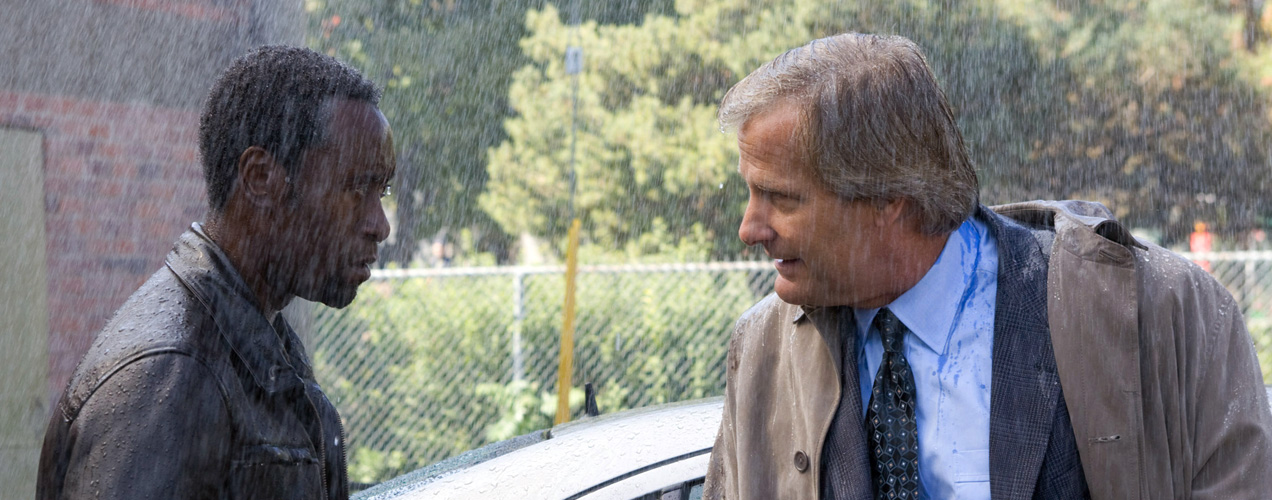
Traitor
2008 / Jeffrey Nachmanoff > I wanted to like this a lot more than I did. It held my interest for quite a bit until the steam started running out. And then the preaching began. I don’t need Hollywood to patronize me on what’s good and bad. The fact that there’s two sides to every story is nothing new, and the plot twist that occur two-thirds through could be seen fifteen minutes into the show. But Don Cheadle is so watchable that he sometimes carries films, and such is the case here. He’s got a kind of silent charisma that makes you pay attention, hoping for something poignant. Well, it didn’t really happen here, but let’s hope he can make it rain in War Machine. Oh, and Steve Martin wrote this? How Intriguing.

Righteous Kill
2008 / Jon Avnet > It might be a tad bit unfair for having such high expectations for this film just because of Robert DeNiro and Al Pacino, but that’s just the way it is. For us to have waited this long for the duo to appear on the same screen, this is an atrocity. It’s a tough task for Avnet, no doubt, but that doesn’t excuse the fact that the sole purpose of the film is to misdirect the viewer. Nothing else. No story, no morality, no nothing. Not to mention boring. The faults here must come from all-around. I mean, seriously, I can’t imagine the script sounding even remotely good for both of these legends to jump onto it? It’s best to erase this from our memories and hope for another hurrah from the two.
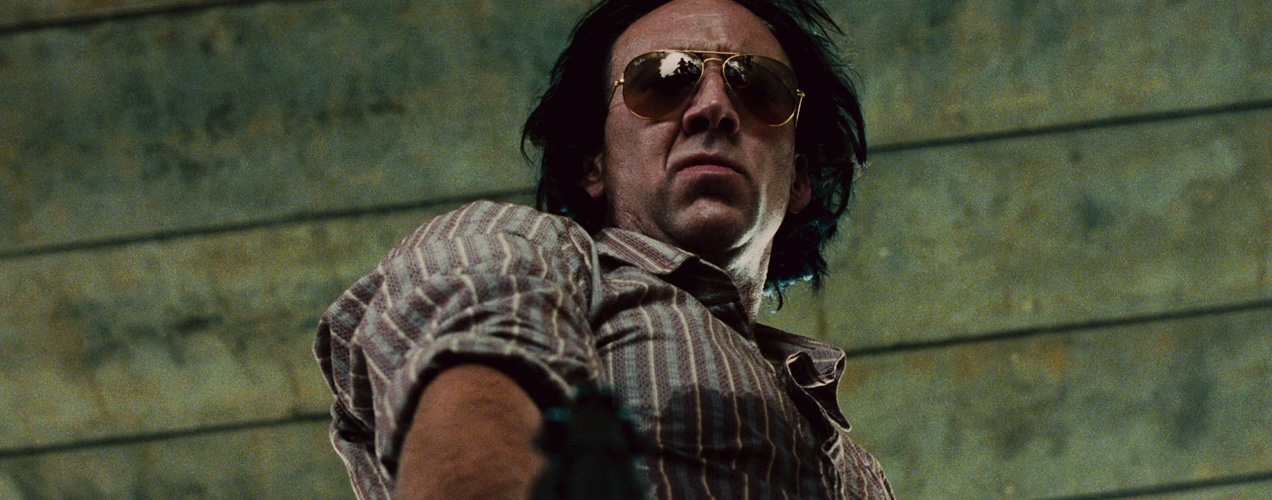
Bangkok Dangerous
2008 / The Pang Brothers > The Pang Brothers created a mystic atmosphere before throwing in the Molotov. First, there’s an assassination that doesn’t make any sense. Then, the “bad guys” make a move that makes no sense. Then, another uncharacteristic assassination sequence. I’m not technically an expert on assassins, but I think it’s safe to say that if you do this for a living, there’s a certain code you abide by, and when that code is shattered in some silly fashion, there’s no turning back. So, the basic premise that Nicolas Cage’s lead suddenly finds love isn’t what’s far-fetched, but rather how the script takes him down that path. The final thirty minutes is a shame because the locale itself gave the film enough potential to succeed. I don’t know if it’s the Pang Brothers’ fault (as I haven’t seen the original) or if the studio bigwigs have forced them into this silly circus. Good music, though.
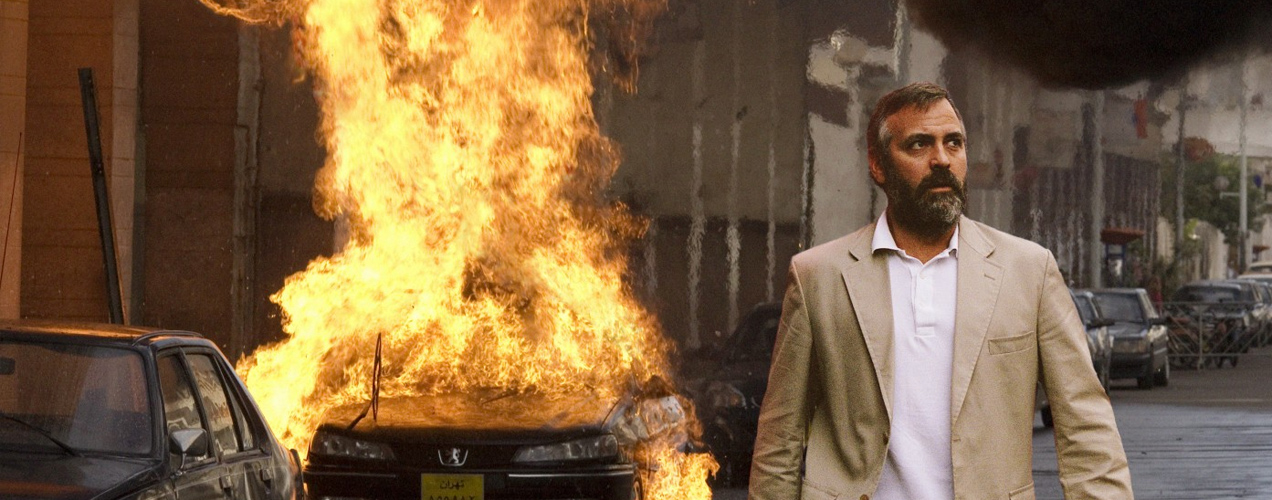
Syriana
2005 / Stephen Gaghan > It’s hard not to appreciate the way in which Syriana unfolds, slowly, meticulously and filled with a sense of legitimacy. It’s neither partisan nor apologist, two qualities that are very hard to find in films that tackle geopolitical issues like oil, terrorism and espionage. In contrast to the recent Body of Lies, Gaghan doesn’t try to wrinkle out emotions out of every nook and cranny, but rather works with the audience to connect dots that are far from obvious. The plot’s complexity mirrors the real world in ways that never feels forced. Even when dealing with the topic of American imperialism, there’s a silver lining of sorts as oilman Tim Nelson Blake tells prosecutor Jeffrey Wright: “Corruption is our protection. Corruption keeps us safe and warm. Corruption is why you and I are prancing around in here instead of fighting over scraps of meat out in the streets. Corruption is why we win.” Yes, it’s blatantly ironic, but that’s fine. The tone is a undoubtedly pessimistic because unfortunately that’s the kind of world this has become. And because we live in it, a film like this is easy to digest and even easier to appreciate.
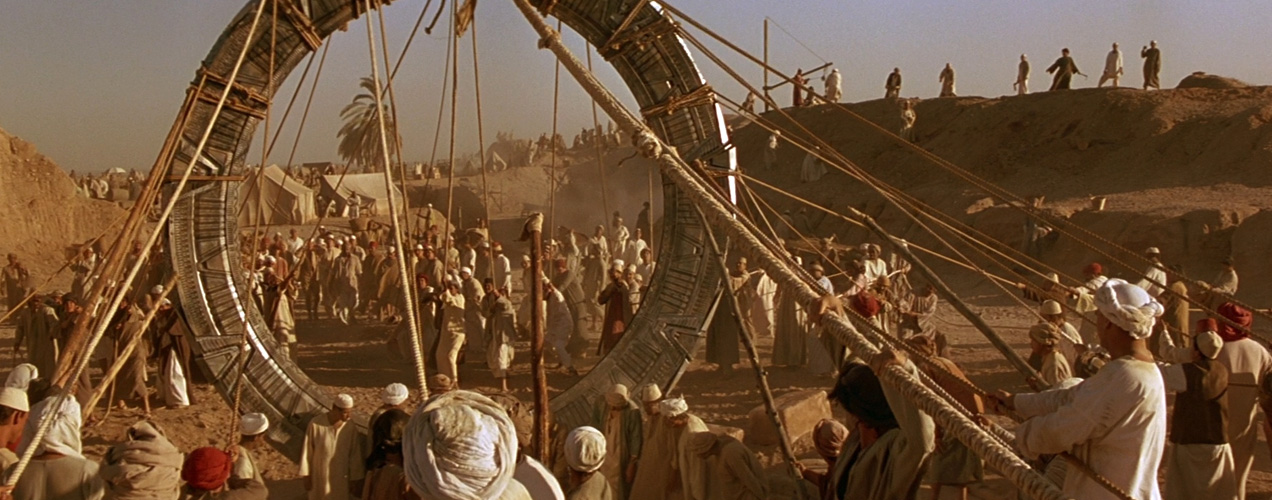
Stargate
1994 / Roland Emmerich > It’s always a bit sad to re-visit a film only to find it a shade of its former self. Such is the case with Stargate, something that I had fondly remembered as a great science-fiction experience upon its release. But time has not been so kind to Emmerich and his creation. The CGI effects are awkward and often unforgiving, some of the the acting is downright wooden (such as Jaye Davidson, who sucked the last bit out of his fame from The Crying Game here) and the story is a bit too shallow to be memorable. (Come to think of it, this and Independence Day are basically the same plot, but on different home fields!) But all of this aside, it’s hard not to give the film credit for climbing us up the imagination tree and fusing ancient Egyptian mythology with a good dose of futurism. This is no classic, not anymore, but it’s still worth a viewing for its sense of nostalgia.
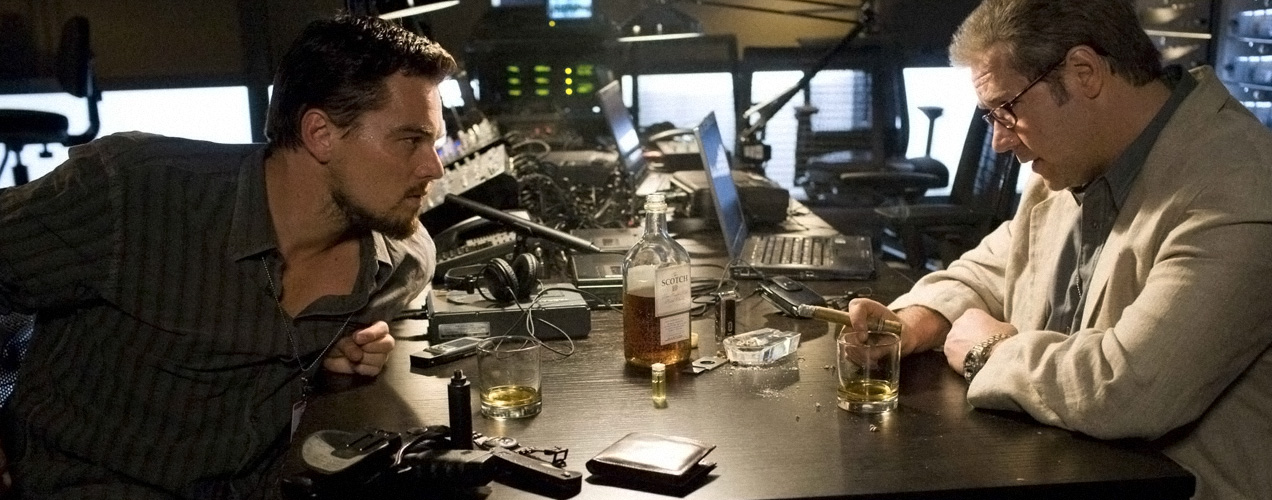
Body of Lies
2008 / Ridley Scott > On his follow-up to The Departed, screenwriter William Monahan really tries to up complexity of the plot as if it wasn’t enough the first time around. In many ways, Body of Lies ends up being a similar type of poker face tale of Billy Costigan, though this time Leonardo DiCaprio’s character works for the U.S. Government and fights terrorism. It works but it doesn’t work: The pacing is disjointed and certain subplots seem afterthoughts to make the whole equation make sense. Scott, though, knows how refine coal into diamonds, so there’s little surprise in how effective much of the directing is. If the film has a purpose other than liberal guilt, it’s not completely obvious. And what it lacks in terms of intelligence (ironically) compared to a film like Syriana, it makes up for with a slick presentation and intensity.
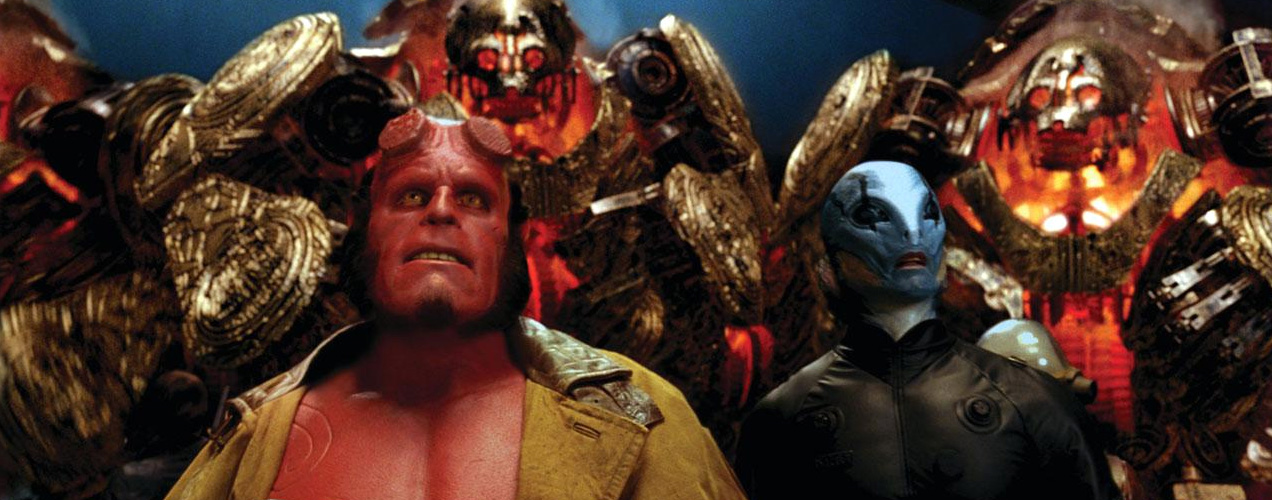
Hellboy II: The Golden Army
2008 / Guillermo del Toro > Hellboy II: The Golden Army is a fun romp through the world of Dark Horse Comics that often gets bogged down by the “too much” theory which commonly plagues sequels: If it worked once, do it again and throw more of it in, right? Well, no, not really. That’s what kills franchises (see Batman & Robin). The story’s fairly generic and a lot of the jokes are barely on the right side of slapstick, though thankfully, del Toro’s considerably more tactful than most others in his profession. But after the serious foray that was Pan’s Labyrinth, I really can’t blame him for having a bit too much fun.

All God’s Children Can Dance
2008 / Robert Logevall > I’m probably not the easiest of people to please when adapting a Haruki Murakami work, but I tried my best to understand Logevall’s vision. Unfortunately, unlike Jun Ichikawa’s work on Tony Takitani, the hour and a half of meandering done by star Jason Lew seems forced and unnecessary. This was never a story that should have been developed this far, and had it been necessary to make it full-length, maybe taking Ichikawa’s direction (where the last half of his film is basically based on one short paragraph) would have been more suited. Otherwise, it mostly bores. On top, Joan Chen’s indie-quirks are pretty hit or miss (the latter being this, the former being Saving Face). Treatment for Murakami’s written word is hard: His novels are too complex, and his short stories are too simple. Either way, Murakami or no Murakami, All God’s Children Can Dance works only on the most superficial levels before receding back into the uninteresting.
Mr. Magorium’s Wonder Emporium
2007 / Zach Helm > Had high hopes for Helm’s debut, having loved his writing in Stranger than Fiction. Throw in Dustin Hoffman, Natalie Portman and Jason Batemen and we should have had a winner, no? Sadly, the film is a complete and utter mess based on ideals that are better fit for a sketch on Sesame Street. While the store in the film brims with imagination, the plot apparently got the short end of that stick.

